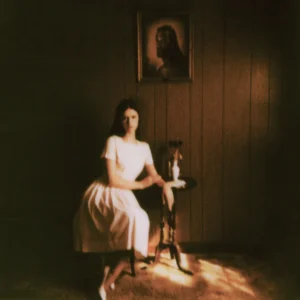“It’s a bit of the very last verse from Paradiso – Dante’s Paradise. ‘My will and my desire were turned by love, the love that moves the sun and the other stars.’ Dante was trying to explain faith, I think, as an overpowering love, and maybe it’s blasphemous, but that’s how I think of the way that I love you. You came into my life and suddenly I had one truth to hold on to- that I loved you, and you loved me.’ – City of Fallen Angels” —”Jace Herondale Quotes,” Jace and Clary, (retrieved on Mar 23, 2023)
“Ptolemaea,” Preacher’s Daughter (2022)
Ethel Cain’s track “Ptolemaea” is titled after one of the four subcircles of Dante’s ninth circle, where the traitors to guests are punished. About the ninth circle, Cain reportedly says, “I was immediately like, ‘That’s how it feels.’ When someone invites you in, brings you into their life, just to hurt you. I was scared of the demo the next day when I listened to it.” — “Ptolemaea (song),” Ethel Cain Lies Here fandom site (retrieved January, 22 2024)
Listen to the track on YouTube here.
Contributed by Mia Boswell
Dinty W. Moore, To Hell With It: Of Sin and Sex, Chicken Wings, and Dante’s Entirely Ridiculous, Needlessly Guilt-Inducing Inferno (2021)
“Dante published his ambitious and unusual poem, Divine Comedy, more than seven hundred years ago. In the ensuing centuries countless retellings, innumerable adaptations, tens of thousands of fiery sermons from Catholic bishops and Baptist preachers, all those New Yorker cartoons, and masterpieces of European art have afforded Dante’s fictional apparition of hell unending attention and credibility. Dinty W. Moore did not buy in.
“Moore started questioning religion at a young age, quizzing the nuns in his Catholic school, and has been questioning it ever since. Yet after years of Catholic school, religious guilt, and persistent cultural conditioning, Moore still can’t shake the feelings of inadequacy, and asks: What would the world be like if eternal damnation was not hanging constantly over our sheepish heads? Why do we persist in believing a myth that merely makes us miserable? In To Hell with It, Moore reflects on and pokes fun at the over-seriousness of religion in various texts, combining narratives of his everyday life, reflections on his childhood, and religion’s influence on contemporary culture and society.” —University of Nebraska Press



